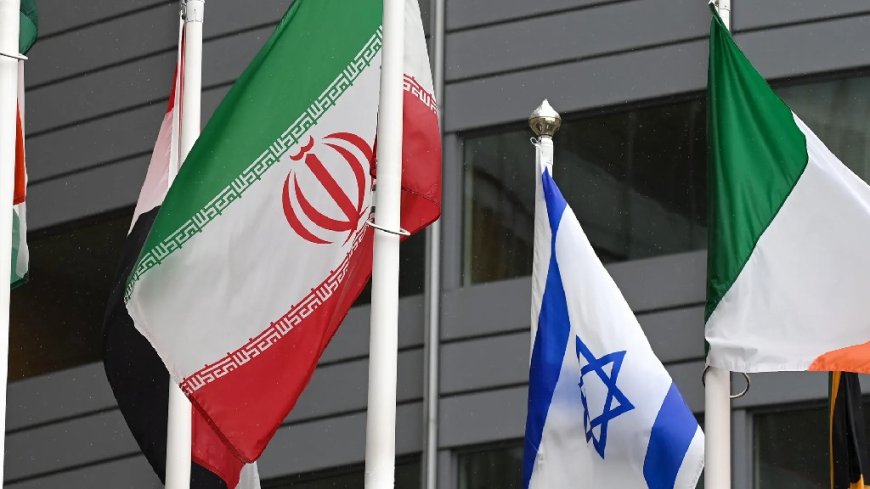Researcher: Israeli moves aim to change the “rules of engagement”
A researcher confirmed that there is an Israeli desire to break the rules of engagement in Syria, Iraq, Lebanon and Yemen, noting that the path of escalation in the region depends on the response by Iran and the forces loyal to it to the assassinations targeting its leaders.

The war between Israel and Hamas has entered its fourth month, in light of increasing fears that it will expand into a more comprehensive regional war, as this escalation will reflect on the situations in Syria, Lebanon, Iraq, and Yemen.
This comes as Israel is moving toward the start of the “third phase” of its war with Hamas, which will focus more on targeting the leaders of Hamas, the Lebanese Hezbollah, the Iranian Revolutionary Guard, the Houthis in Yemen, and the Popular Mobilization Forces in Iraq, and moving towards implementing assassinations based on intelligence information, which actually began with the assassination of the commander of the Iranian Revolutionary Guard, Radhi Mousavi, in the vicinity of Damascus.
Regarding the implications of Israel and the United States starting a wave of assassinations of the leaders of Hamas, the Popular Mobilization Forces, the Iranian Revolutionary Guard, and Lebanese Hezbollah, and their relationship to the expansion of the war, Dr. Iman Zahran, a researcher in international relations and regional security, believes that “many field scenes establish the expansion of the ongoing war between Israel.” and the Hamas movement, based on what the Hamas operation established in terms of the principle of the so-called unity of the arenas.”
She continued, "Field and military movements by Hezbollah in southern Lebanon began to appear, in addition to the growth of various movements by Iranian-backed armed militias in both Syria and Iraq, and their targeting of foreign military bases, most notably American bases."
She added, "The movements of the Houthi group in the Red Sea and the intensification of their attacks on Israeli cargo ships, or those heading to Tel- Aviv as a form of solidarity with the Hamas movement, is a step that may add more escalation in the region, and to the international system as a whole, given the turmoil in global trade movement."
The researcher in international relations and regional security pointed out that a number of implications were “imposed by the nature of Israeli movements abroad in a number of countries, in view of the targeting and assassinations of prominent leaders at various levels, whether by Hamas, Hezbollah, or the Revolutionary Guard.”
Emphasizing that "all of them establish a number of connotations, the most prominent of which is: a clear violation of the so-called rules of engagement, and this is a term being promoted by Hezbollah and its allies, claiming that they were able to impose it on Israel, as the operation is another test that reveals the extent of consensus on the principle of unity of arenas."
The current situation, according to the researcher, depends on the response, whether on the part of Iran and the forces loyal to it, and the repercussions after the response to the Israeli assassination movement in a way that may consolidate the hypothesis of the expansion of the combat fronts and create more unrest in the Middle East, starting from Gaza, Syria, southern Lebanon and the region. The Red Sea.
All this escalation between Iranian and Israeli agents comes in light of Iranian and American assurances that both parties do not want a direct confrontation between Tehran and Tel- Aviv. Dr. Iman Zahran predicted that, to a large extent, “there is a desire to reconsider the timing of the war and the map of confrontation, given to a state of expansion and the entry of direct and indirect parties onto the map of the Israeli-Palestinian conflict.”
On the other hand, the researcher in regional security believes that there are sub-files related to the size of the various reactions to the war on Gaza, the most prominent of which is related to the United States’ fears of continued escalation in the Red Sea, and its impact on the global trade movement in light of the decline in economic recovery rates in all sub-regions of the international system.
Confirming that this is the case at the Iranian level, despite the indirect support for factions loyal to Iran in the war against Israel, there are outstanding files related to the pattern of interactions in the region and the degree of engagement, most notably the file of resuming the negotiations of the Iranian nuclear agreement and what is related to the file of economic sanctions. “All of these files represent different stakes for both Washington and Tehran regarding a state of war.”
T/ Satt.
ANHA














